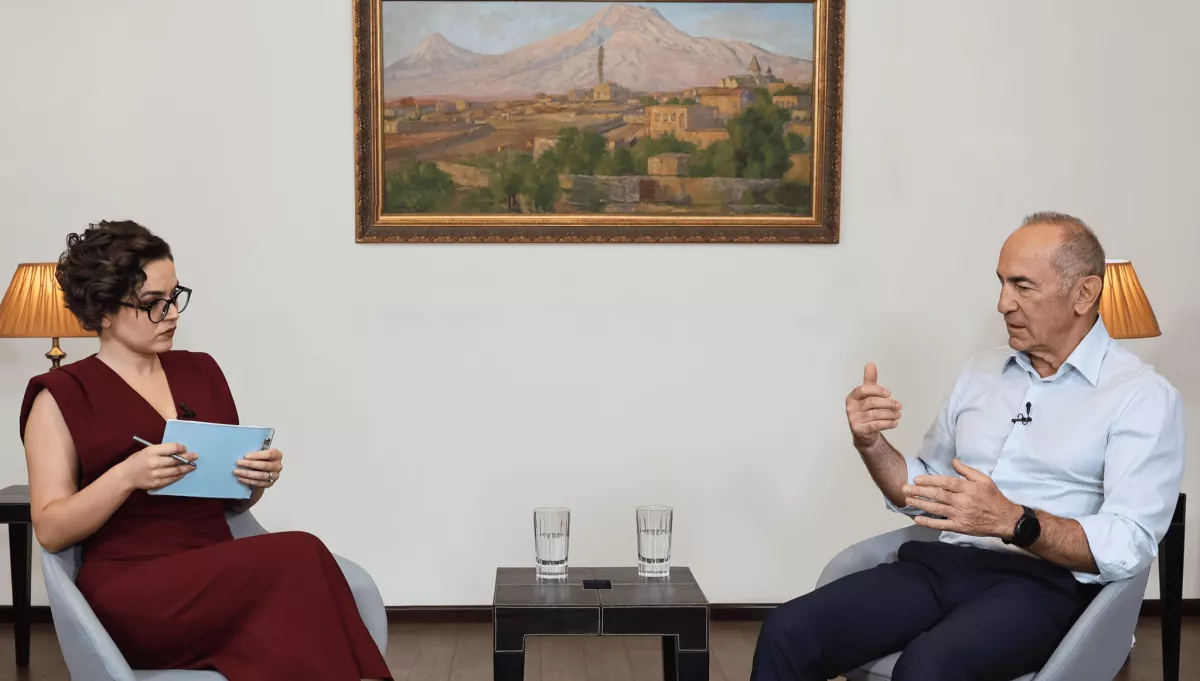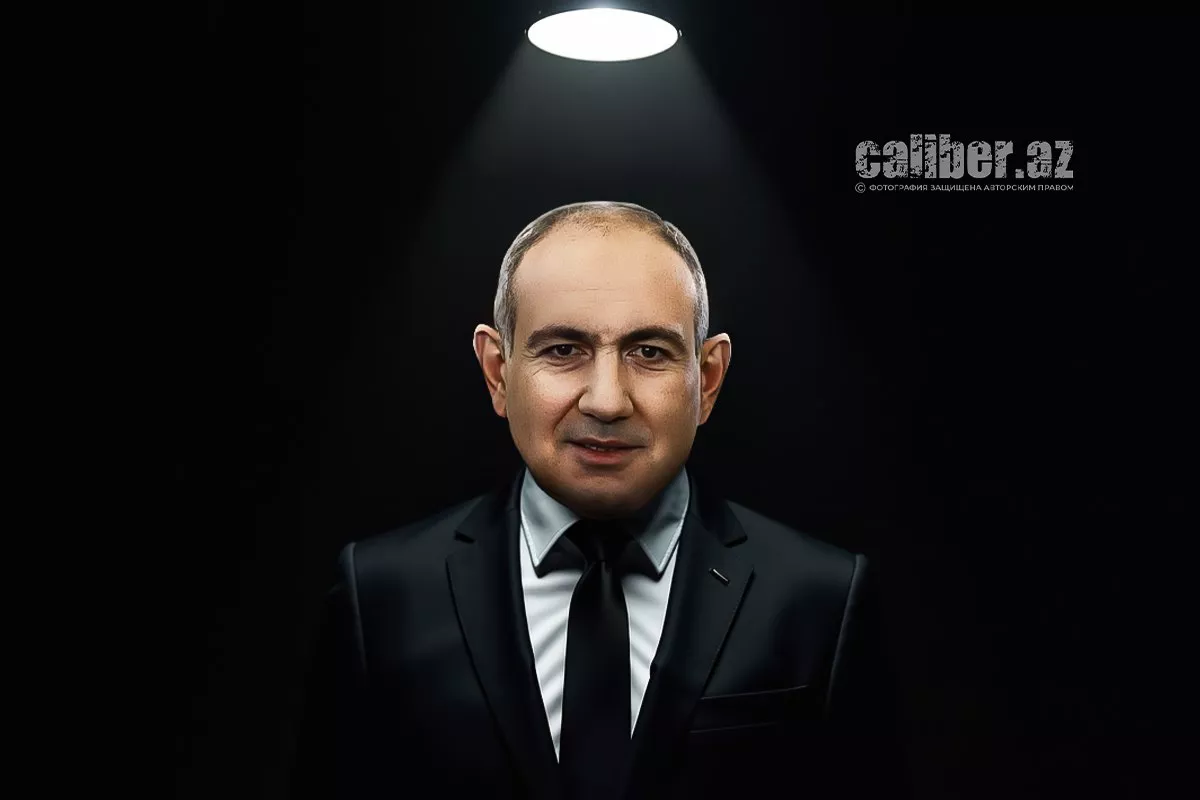Armenia’s political relic Kocharyan dreams of a comeback from oblivion
In a recent interview with "Channel 5," former Armenian President Robert Kocharyan attempted to portray his years in office as a time of “progress and growth.” Yet for those familiar with his so-called "achievements," this sounds more like a journey into the Kingdom of Crooked Mirrors, where distorted reflections present decline as success, confrontation as principle, and the loss of sovereignty as strategic partnership.

Let’s take a brief look back to confirm this. At one time, this figure worked in the Stepanakert (Khankendi – editor’s note) city committee of the Komsomol, meaning he was an Azerbaijani Komsomol official of Armenian ethnicity. Fortune’s wheel later lifted him to the heights of Armenia’s so-called political Olympus—only for him to eventually tumble back down.
In 2008, Serzh Sargsyan became Armenia’s president, often perceived as a mere successor to Kocharyan. However, that isn’t entirely accurate. Though both belonged to the “Karabakh clan” that ruled Armenia at the time, a long-standing rivalry existed—and still exists—between them. Sargsyan harbours such personal disdain for Kocharyan that it reportedly affects even his appetite, a sentiment fully reciprocated by Kocharyan.
Kocharyan also left behind a criminal trace during his presidency: he and Armen Gevorgyan have been accused of accepting large bribes—amounting to approximately $3 million.
As for ordinary Armenians, Kocharyan has long been a symbol of a grim past—one no one wishes to return to under any circumstances. That’s why, even after Armenia’s defeat in the 44-day war, his “Armenia” alliance secured just over 21% of the vote in the June 2021 parliamentary elections, while Prime Minister Pashinyan’s Civil Contract party received nearly 54%.
In other words, at a time when one could have exploited the public’s emotional distress and disorientation following a national military and political fiasco, Kocharyan and his team, to put it mildly, failed miserably. They tried to capitalise on public discontent but ended up with nothing to show for it. Since then, Kocharyan’s approval ratings have only continued to decline.
A recent poll conducted by the International Republican Institute (IRI) showed that 61% of respondents in Armenia do not trust any political figures. Of those surveyed, 12% expressed trust in Prime Minister Pashinyan, while only 4% trusted the second president. So, even amid a general loss of faith in Armenian politicians, Pashinyan’s rating remains three times higher than Kocharyan’s.

And against this backdrop, Kocharyan, in his interview with “Channel 5,” casually declares that “the ratings of Nikol Pashinyan and the Civil Contract party are in a steady downward trend.” Naturally, he chose not to mention which “trend” his own ratings—and those of his alliance—are steadily following.
Kocharyan also tried to present his presidency as an “era of social progress,” but the reality behind the figures he cites tells a different story. Official statistics from that period do show a decrease in poverty in Armenia, but this did not result from sustainable economic growth or diversification. Instead, it coincided with mass labour migration, remittances from abroad, and the sell-off of the republic’s strategic assets to Russia. Under his leadership, the so-called “land of stones” effectively lost control over its key energy and infrastructure assets, while large segments of the population remained impoverished.
Armenia still faces socio-economic challenges today, but the path out of crisis lies elsewhere: in securing long-term peace and reopening all regional communications, including the launch of the Zangezur Corridor, which could unlock new opportunities for trade, investment, and job creation.
The signing of a peace treaty with Azerbaijan and integration into regional projects represents a genuine opportunity for growth and poverty reduction in Armenia. This is the country’s way out of its geopolitical deadlock. Yet Kocharyan stands firmly against it, preferring to keep the republic locked in a state of confrontation and isolation—a strategy that during his time only deepened economic dependence and social inequality.
The Armenian people understand this perfectly well. According to the same International Republican Institute survey, 47% of Armenia’s population supports signing a peace treaty with Azerbaijan. This is more than the share of those who oppose the agreement, proving the following: "Robinson" Kocharyan, like other obsolete figures in Armenian politics, may continue mocking common sense—but the new era has its own rules. And in today’s political reality, there is no place on the chessboard for these shady characters—not even as pawns.








